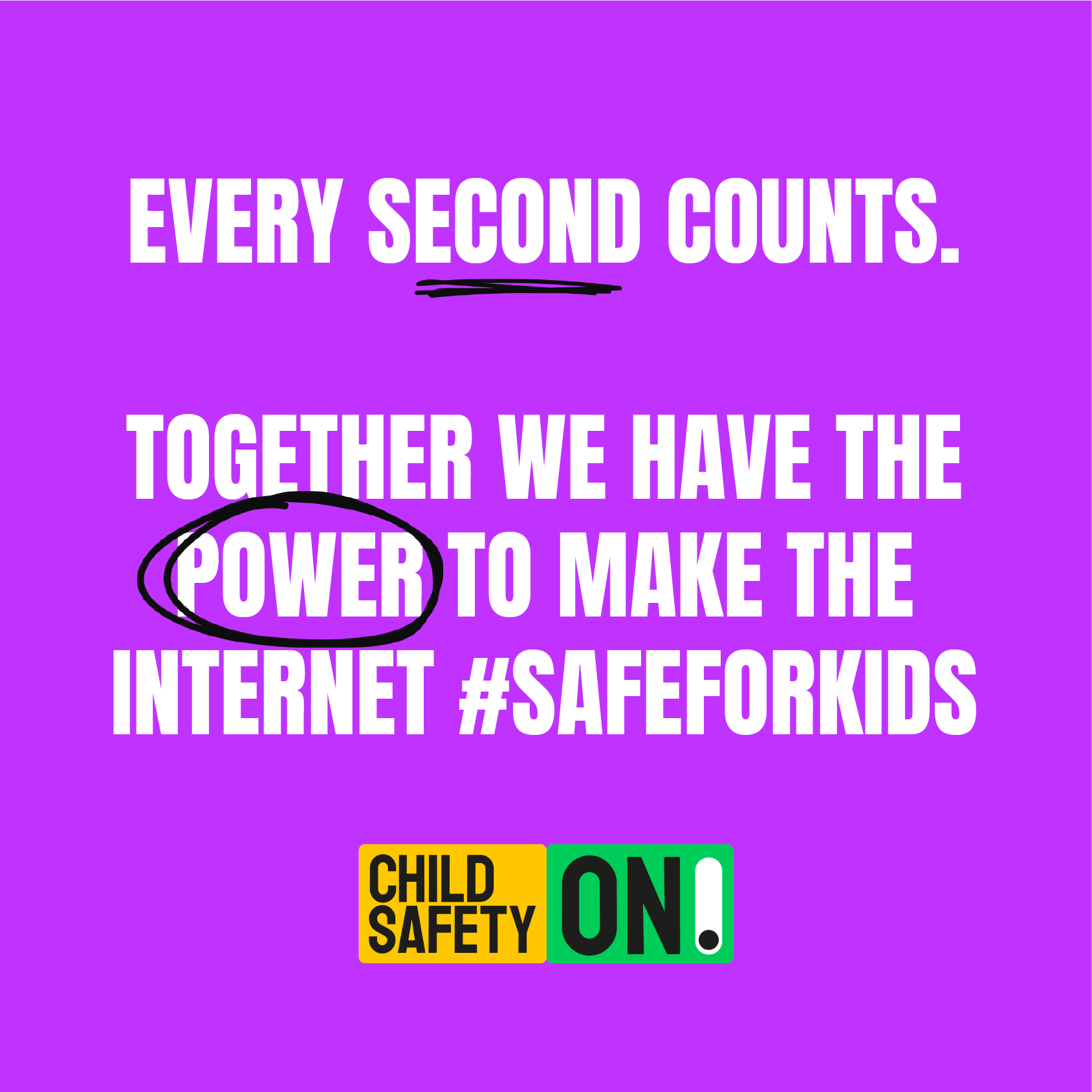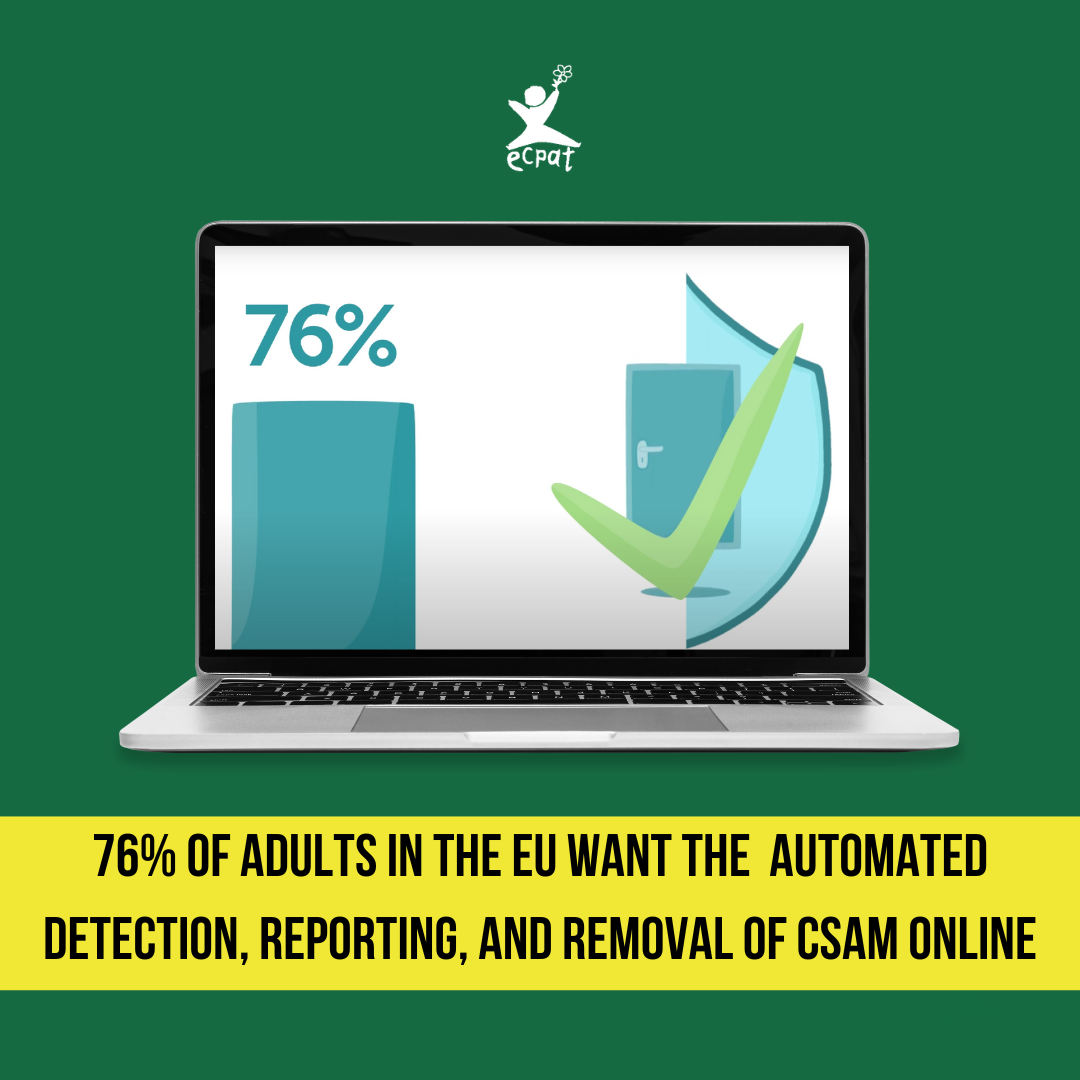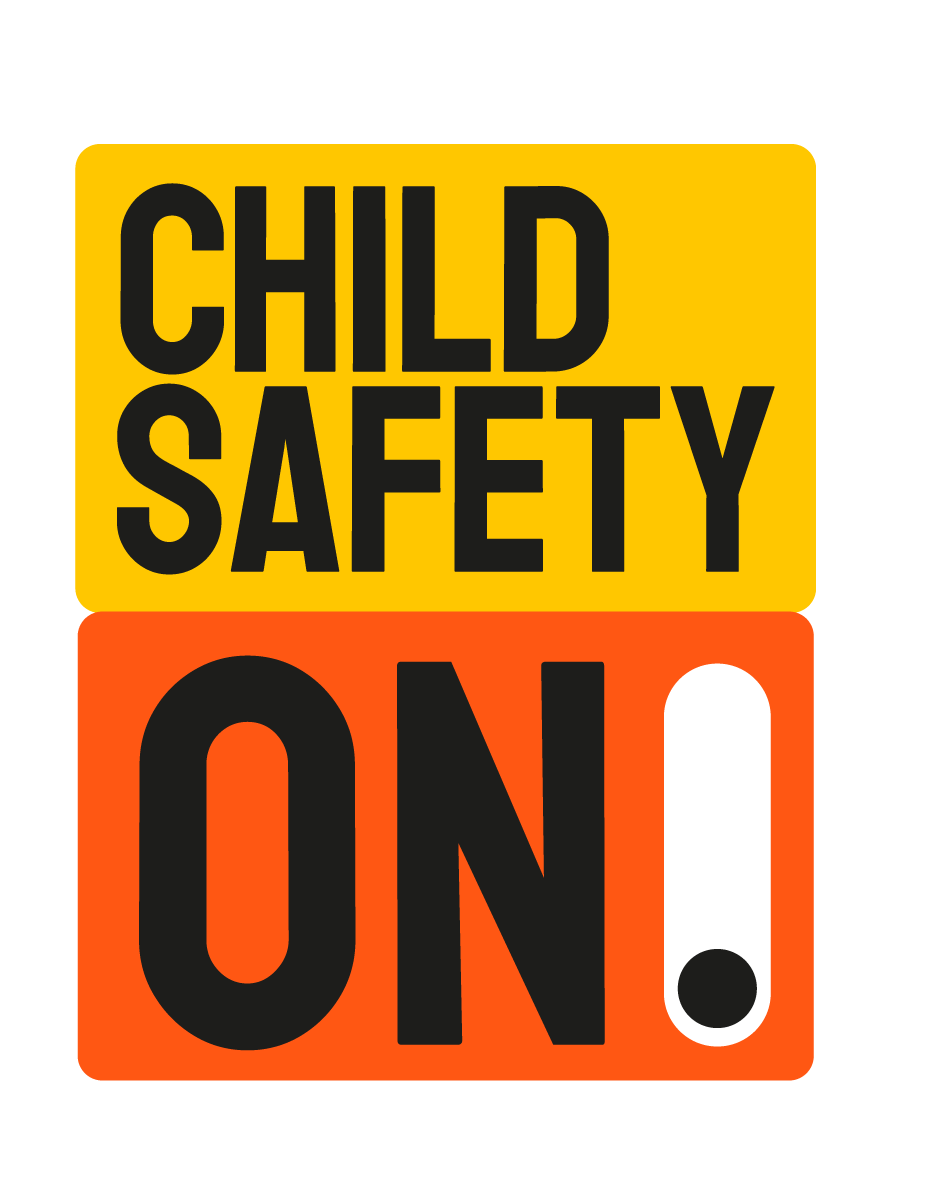Over the last couple of years, conversations around the balance between online privacy and how to ensure child safety online have increased. For many, these issues are often confusing and delve into highly technical terminology and jargon.
The protection of children from online child sexual abuse and users’ privacy online are both largely addressed in distinct pieces of European legislation, and while we debate about how to find the right balance, child sexual abuse material is found online every 2 seconds. There is no time to lose.


In 2021, ECPAT International conducted an online survey with adults to find out ‘what EU citizens really think about the issues of online privacy and the need to ensure child safety online?’ In partnership with ECPAT member Defence for Children – ECPAT Netherlands and YouGov, we polled eight countries across the European Union to gage public opinion on online child protection and users’ privacy online.
We surveyed 9,410 adults—a cross section of EU society—from France, Germany, Hungary, Italy, the Netherlands, Poland, Sweden, and Spain. We asked them various questions to assess what they thought of a legal obligation to use detection technology, how it would affect their online privacy, and what they would like to see as it pertains to protecting children online. Read the summary of the findings.
The results clearly demonstrated that there is widespread public support for the use of automated tools to identify child sexual abuse material online and for the European Union to introduce longer-term legislation that will keep children safe online.
According to our survey, 76% of adults have indicated a willingness to allow automated technology tools to specifically scan and detect child sexual abuse material online – even if this means giving up some of their privacy!
Most agree that regulating online spaces with the best interest of children is essential to ensuring their safety online.
Suojellaan Lapsia – Protect Children, a non-governmental organisation working to prevent sexual violence against children in Finland, polled their citizens with different questions and found that two thirds of Finns also think that children should have more protections in the digital environment. Read Suojellaan Lapsia – Protect Children findings.

Encouragingly, in May 2022 the European Commission published a proposal for a a law to prevent and combat child sexual abuse. If approved, the law will require online service providers to detect, report, and remove child sexual abuse online, including images and videos of children being abused (child sexual abuse material) and dangerous messages aimed at children (grooming). In addition, online service providers will be required to adopt strong safeguarding mechanisms, such as age verification tools, to prevent child sexual abuse online in the first place, while respecting the rights of all users to privacy online.

Be part of the #ChildSafetyON movement and support our campaign to call on politicians, online service providers, and tech companies to take responsibility in the creation of a better digital world, one where all children will feel empowered and safe from the increasing risks of sexual abuse and exploitation.
Meet ECPAT Project Beacon – Putting children’s rights into the heart of digital policy
How far are we to ensure Child Safety Online in the EU? A timeline of events.
Towards online child protection in the EU
Why Does Online Child Protection Matter? Here is ECPAT Project Beacon to explain why
ECPAT welcomes European Commission’s proposal to prevent and combat child sexual abuse
What is ECPAT doing to ensure Child Safety Online in the EU?
Comment, like, and share to help us get the word out! #EUvsChildSexualAbuse #ChildSafetyON
